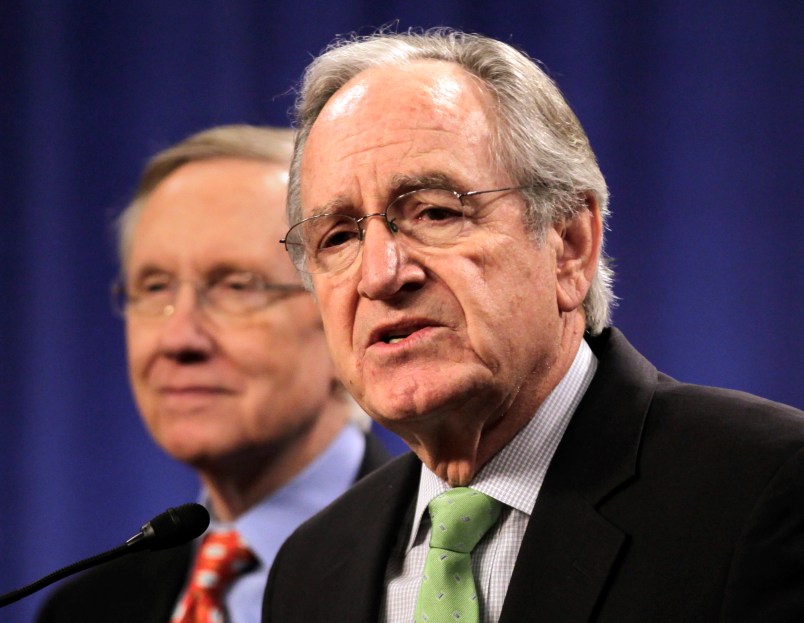It seemed like a damning statistic that bolstered a beloved Republican talking point: Obamacare would result in 2.5 million fewer full-time jobs over 10 years.
Needless to say, Republicans pounced, issuing a flurry of statements declaring that the report released Tuesday by the nonpartisan Congressional Budget Office proves that Obamacare would “cost” or “kill” jobs and result in more “pink slips.”
But scratch beneath the surface and the statistic isn’t so damning. It turns out that that the job reductions would “almost entirely” result from people voluntarily opting not to work (or work part time) because they’ll no longer be dependent on their employer for health care, as the CBO report stated.
In fact, Democrats said that is one of the selling points of Obamacare: The law was designed to enhance Americans’ health security regardless of whether they had a job, and relieve entrepreneurs of rising health care expenses.
“One of the strong points of the Affordable Care Act is that you don’t have to keep working someplace just to get your health insurance,” Sen. Tom Harkin (D-IA), a leading author of Obamacare, told TPM on Tuesday. “I absolutely believe that what we’re seeing here with the Affordable Care Act is that people now can become entrepreneurs, they can start their own businesses, they can do different things and they aren’t tied to some place just because of health insurance.”
Harkin’s colleagues agreed.
“I think you’re going to see enormous innovation in this economy because people can now leave their employer knowing that they’re going to have health care when they take an idea and turn it into a start-up business,” Sen. Chris Murphy (D-CT) told TPM. “There’s enormous economic freedom that comes from the health care bill.”
Unlike in other developed countries, about half of all Americans get their health insurance from their employer, in part because individual market is expensive, often ineffective and provides little health security. As a result, many people have been stuck with their employer because they can’t find health care elsewhere. Obamacare aims to fix that by providing subsidies and imposing rules on insurers that make it easier for consumers to buy coverage on the individual market.
“We have a CBO report that, rightfully, says that people shouldn’t have job lock. We live in a country where people should be free agents — where people can do what they want,” Senate Majority Leader Harry Reid (D-NV) told reporters. “This Republican talk about losing millions of jobs simply isn’t true. [Obamacare] allows people to get out of the job they’re locked into because they have health care from their job. Now there [are more options] for health care.”
As CBO explained, “The estimated reduction stems almost entirely from a net decline in the amount of labor that workers choose to supply, rather than from a net drop in businesses’ demand for labor, so it will appear almost entirely as a reduction in labor force participation and in hours worked relative to what would have occurred otherwise rather than as an increase in unemployment (that is, more workers seeking but not finding jobs) or underemployment (such as part-time workers who would prefer to work more hours per week).”
TPM asked Sen. Orrin Hatch (R-UT) about that aspect of CBO’s finding.
“Well, I’m not sure which side [the jobs are] going to be lost from. Probably from
both sides,” he said. “But it’s a real big problem for this country.”
Reid said that the CBO report is “far better” for Democrats than it is damaging.
“There’s just no evidence to suggest that the health care bill has hurt jobs. We’ve been growing jobs ever since we passed it,” Murphy said. “What worries me is that Democrats are still way too defensive when it comes to the ACA.”






